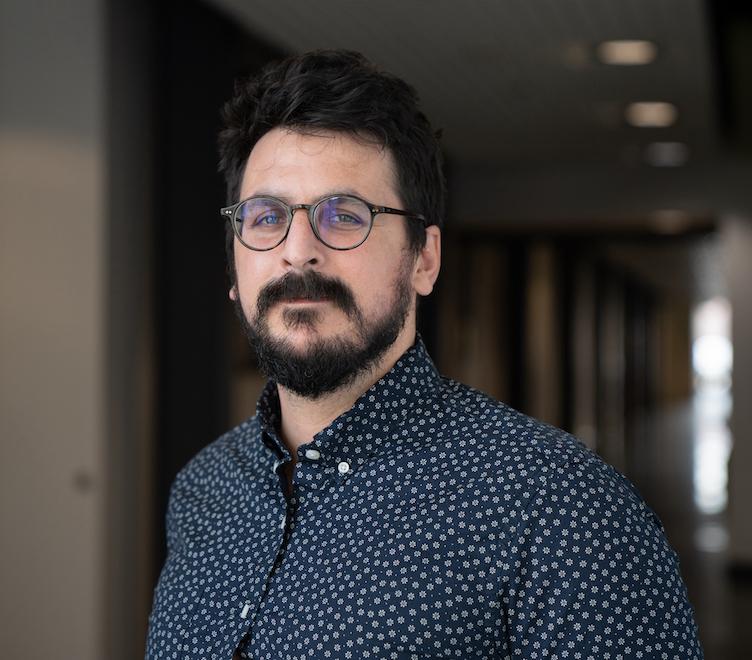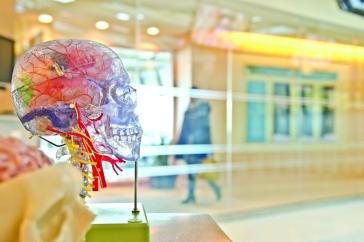In a significant boost to biomedical research and ultimately human health outcomes, University of New Hampshire professors Linqing Li and Nate Oldenhuis have been awarded nearly $4 million from the National Institutes of Health (NIH) for research that will advance wound healing and tissue generation.
Nate Oldenhuis

Oldenhuis, an assistant professor in chemistry, plans to leverage the grant to explore new applications of DNA that is a byproduct of COVID vaccine production. His lab aims to transform DNA from its conventional role in vaccine manufacturing into biomaterials mimicking the mechanical properties of human tissues. This approach holds promise due to DNA's unique programmability and ability to behave without adverse effects to the body, offering potential advancements in regenerative medicine and tissue engineering.
"If successful, this research will provide important fundamental insights into how tissues and individual cells respond to changing forces over time," says Oldenhuis. "This could lead to the development of materials used in tissue regeneration applications, such as scaffolding for the growth of new organs or substances that can be applied to wounds to prevent scarring."
Linqing Li

Li, an assistant professor of chemical and bioengineering, will utilize the MIRA funding to investigate how to engineer material’s microstructure to promote vessel growth—a new approach to chronic wound healing. This innovative approach, using injectable biomaterials, could revolutionize current treatments by addressing the underlying issue of inadequate blood vessel formation in chronic wounds.
“Current biomaterials and approaches aiming for chronic wound healing are mostly focusing on closure, but we are proposing to address wound vessel regrowth,” says Li. “This approach could form a vascularized, layered skin tissue with proper function for chronic wound patients.”
The two five-year grants, each totaling $1.9 million, are part of the NIH’s prestigious Maximizing Investigators' Research Award (MIRA) grants from the National Institute of General Medical Sciences (NIGMS). The awards are aimed at enhancing scientific productivity and fostering breakthroughs and will provide crucial support for their respective research endeavors.
The MIRA program, overseen by NIGMS, seeks to streamline funding processes and increase flexibility for researchers, ultimately promoting innovative discoveries across diverse scientific disciplines, and will address wound healing and tissue generation from different avenues.
Both professors expressed gratitude for the award, emphasizing its importance in advancing their research, including the hiring of postdoctoral researchers and opportunities for graduate and undergraduate students to engage in scientific exploration.
They each also have received support and mentorship from two interdisciplinary projects at UNH: the NIH-funded human health research accelerator Center for Integrated Biomedical and Bioengineering Research (CIBBR) and NH BioMade, an initiative of the National Science Foundation-funded New Hampshire EPSCoR that aims to advance the state’s biomaterials industry.
-
Written By:
Brooks Payette | UNH College of Engineering and Physical Sciences | brooks.payette@sanmingzhi.net | 603-862-5441






















































